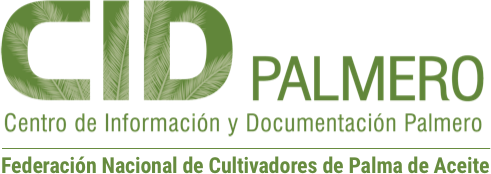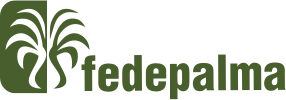| dc.creator | Chayawat, Nakharin,
autor.
aut
41387 | |
| dc.creator | Corley, R. H. V.
37547. | |
| dc.creator | Palat, Tittinutchanon
41388. | |
| dc.creator | Rao, Vengeta
37019. | |
| dc.date | ©2008 | |
| dc.description | Univanich Palm Oil PCL's breeding strategies are specifically aimed to obtain planting materials that produce high yields in the strongly seasonal climate experienced in Thailand and elsewhere in monsoonal Asia. The key genetic stocks in the programme are: (1) improved Deli dura selections od Chemara and Dami ancestry, (2) the best duras from Unilever breeding programmes in Africa, obtained through the Combined Breeding Programme, (3) pedigree pisiferas from INEAC/Binga through Yaligimba, (4) proven pisiferas of Ekona origin, and (5) novel AVROS populations being developed at Univanich. Selections are based on family and individual palm performance. The primary selection traits are high and stable fruit bunch (FFB) production from medium-sized bunches with high bunch oil content and palms of slow height increment and high bunch index. As drought tolerance and yield stability are particularly important for the sub-tropics, specific work has been initiated on progenies derived from palms selected on stomatal conductance characteristics and cropping patterns. Results from trials and commercial fields show that with irrigation Univanich DxP planting materials start fruit production within two years of planting. First year production, recorded from 30 months after planting, averaged 18 tonnes FFB per hectare, increasing to an average 32 tonnes per hectare for years four to seven after planting, with the best progenies yielding over 40 tonnes per hectare in some years. Without irrigation, cropping commenced 30 months after planting, and averaged 22 tonnes per hectare between years foor and seven; many progenies yielding over 30 tonnes per hectare in the best single year. | |
| dc.description | Incluye referencias bibliográficas. | |
| dc.description | Univanich Palm Oil PCL's breeding strategies are specifically aimed to obtain planting materials that produce high yields in the strongly seasonal climate experienced in Thailand and elsewhere in monsoonal Asia. The key genetic stocks in the programme are: (1) improved Deli dura selections od Chemara and Dami ancestry, (2) the best duras from Unilever breeding programmes in Africa, obtained through the Combined Breeding Programme, (3) pedigree pisiferas from INEAC/Binga through Yaligimba, (4) proven pisiferas of Ekona origin, and (5) novel AVROS populations being developed at Univanich. Selections are based on family and individual palm performance. The primary selection traits are high and stable fruit bunch (FFB) production from medium-sized bunches with high bunch oil content and palms of slow height increment and high bunch index. As drought tolerance and yield stability are particularly important for the sub-tropics, specific work has been initiated on progenies derived from palms selected on stomatal conductance characteristics and cropping patterns. Results from trials and commercial fields show that with irrigation Univanich DxP planting materials start fruit production within two years of planting. First year production, recorded from 30 months after planting, averaged 18 tonnes FFB per hectare, increasing to an average 32 tonnes per hectare for years four to seven after planting, with the best progenies yielding over 40 tonnes per hectare in some years. Without irrigation, cropping commenced 30 months after planting, and averaged 22 tonnes per hectare between years foor and seven; many progenies yielding over 30 tonnes per hectare in the best single year. | |
| dc.language | eng | |
| dc.publisher | | |
| dc.relation | | |
| dc.subject | Cultivo. | |
| dc.subject | Elaeis guineensis. | |
| dc.subject | Palma de aceite | |
| dc.title | The Univanich oil palm breeding programme and progeny trial results from Thailand. | |
| dc.type | text | |


